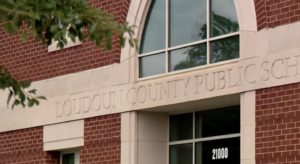Public school districts from Denver to Loudoun County are failing their special education students
A Colorado investigation recently found that Denver Public Schools violated federal requirements for special education, failing over 1,000 disabled students in the process.
A complaint filed with…

A Colorado investigation recently found that Denver Public Schools violated federal requirements for special education, failing over 1,000 disabled students in the process.
A complaint filed with the Colorado Department of Education (CDE) on behalf of one student found that DPS chronically failed to provide speech pathology services, which the district blames on a nationwide labor shortage.
The initial complaint was made on behalf of a nonverbal six-year-old boy with a developmental delay.
The boy was supposed to receive 24 hours of therapy with a speech pathologist, but his Denver elementary school didn’t have one on staff. As a result, his behavioral issues worsened, and he began “pulling hair, pushing classmates, and hitting teachers,” reported Chalkbeat Colorado.
His parents filed a complaint with the CDE, which ruled that the district has until April 18 to submit a plan for corrective action.
Other parents took their concerns directly to the school board.
“Right now, for my son, the only option I have is to pull him out of school to take him to speech therapy,” parent Danella Pochman told the board in January.
“And I don’t think that feels right to me,” she continued. “I think he deserves to have that training, that communication education, within his kindergarten classroom.”
Another parent, Karen Burton, said her preschool son rarely met with his speech therapist, who subsequently left the school and hasn’t been replaced.
“I am disturbed that I have had to go to so much work to get any communication from the district about their plans and responsibilities to meet my son’s needs,” Burton said.
While the district maintains the issue is related to staffing, others believe it could be a problem with the culture.
“Denver Public Schools has lost truly some of the best and brightest general education teachers, special education teachers, and providers,” said Pam Bisceglia, executive director of Advocacy Denver. “The culture is not a good culture.”
Unfortunately, such stories aren’t unique to the Mile High City.
The Supreme Court recently ruled in favor of a Michigan student whose school didn’t provide him with a qualified sign-language interpreter, violating the Individuals with Disabilities Education Act (IDEA).
In Texas, a state investigation revealed the Austin school district had a backlog of special education evaluations and was failing to meet the conditions of students’ special education programs.
Other parents in Virginia also believe that their public schools fail to adequately serve disabled students.
“From my experience, I will say LCPS [Loudoun County Public Schools] goes to great efforts to avoid the legal responsibility granted to students under IDEA,” said Amanda Folks, whose daughter requires special education services.
Anna Hutchinson, whose daughter has a vision disability, ran into similar roadblocks when the school wouldn’t recognize the condition as a disability.
“I didn’t know my rights, I didn’t know I had to self-advocate,” Hutchinson said. “It felt like a game of chicken. The teachers knew she couldn’t read, but they kept advancing her.”
But despite families’ struggles to access special education services, Loudoun County is considering cutting 10 positions, a move that six of the district’s speech pathologists protested.
“We are indeed not overstaffed but grossly understaffed,” Kara Vessey said at a recent school board meeting.
Meanwhile, federal officials have found that the entire Virginia Department of Education is also out of compliance with federal law, as it doesn’t adequately address families’ complaints about their child’s special education – or lack thereof.
“It was difficult just at the school level to elevate the needs of my child and have them taken seriously,” recalls Rachael Deane, chief executive officer at Voices for Virginia’s Children. “I had to draft long formal emails and try to persuade the school that I knew what I was talking about – and that my child’s needs really did need to be recognized.”



